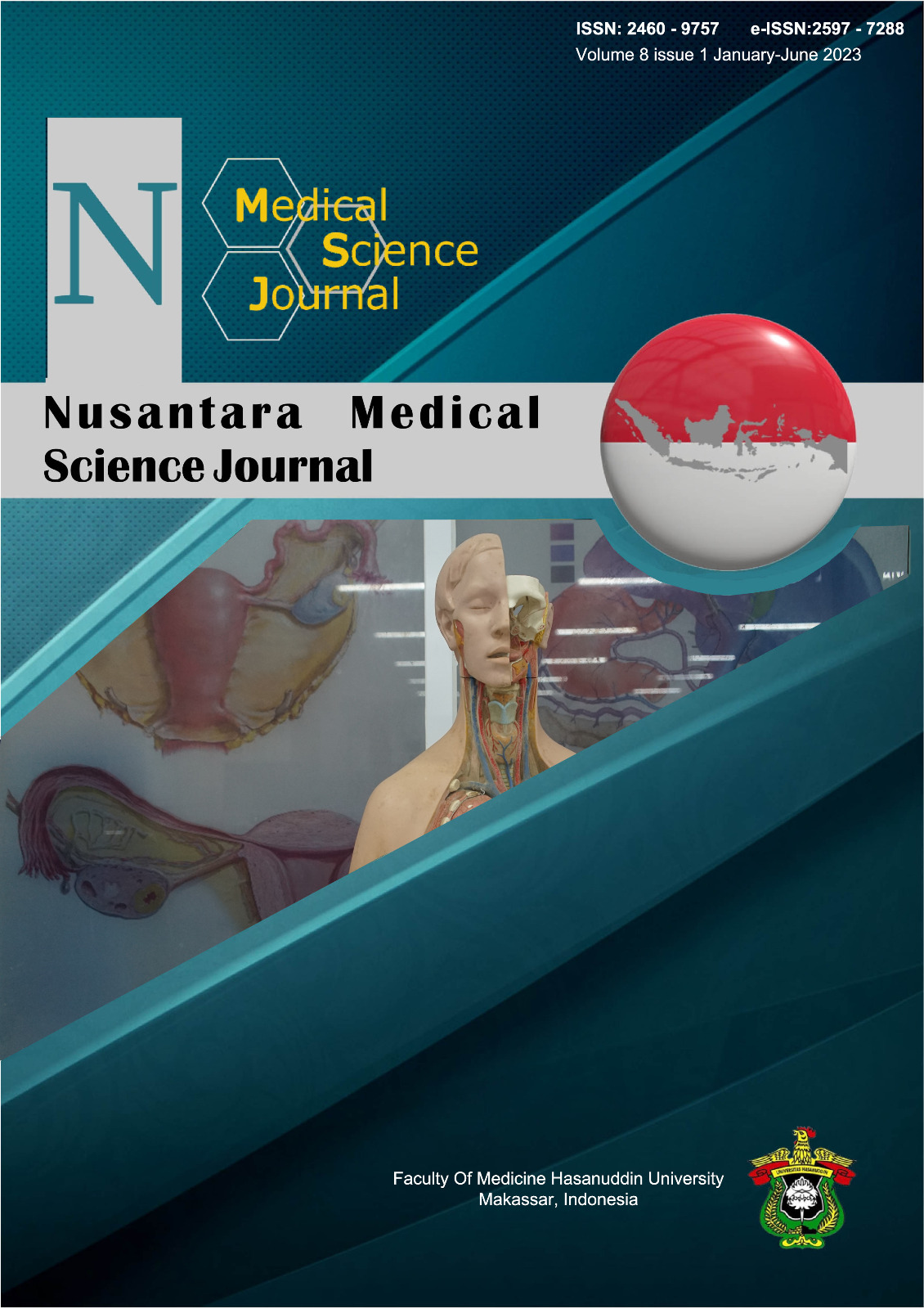Repetitive Transcranial Magnetic Stimulation (rTMS) as Non-Invasive Therapeutic for Post-Stroke Dysphagia: A Case Report
DOI:
https://doi.org/10.20956/nmsj.v8i1.27392Abstract
Introduction and importance: One of the worst complications that affects people with stroke is dysphagia. Dysphagia causes mortality through dehydration, malnutrition, aspiration pneumonia, and suffocation. For stroke survivors to have better results, post-stroke dysphagia must be adequately addressed using proven treatment methods. Presentation of case: A 64-year-old man complaints of difficulty swallowing with Gugging Swallowing Screen scoring (GUSS)= 7 (severe dysphagia) with left hemiparesis and slurred speech due to ischemic stroke on August 14th 2022. Head CT Scan found bilateral lacunar basal ganglia infarcts with brain atrophy. Patients were treated with standard ischemic stroke therapy, medical rehabilitation and repeated Transcranial Magnetic Stimulation (rTMS) procedures for 10 sessions. GUSS was carried out after the 10th session of rTMS and increased to 14 (moderate dysphagia). Discussion: By stimulating the esophagus cortex bilaterally in post-stroke dysphagia, rTMS is known to be beneficial in modulating cortical excitability and minimizing the imbalance between the hemispheres. Furthermore, it appears to be safe and well-accepted by patients. Conclusions: Our case study shows that rTMS in bilateral esophageal cortex is safe and has therapeutic potential in patients with post-stroke dysphagia.
References
Dysphagia, Ischemic stroke, Repetitive Transcranial Magnetic Stimulation
Downloads
Published
How to Cite
Issue
Section
License
Copyright (c) 2023 Nusantara Medical Science Journal

This work is licensed under a Creative Commons Attribution 4.0 International License.









